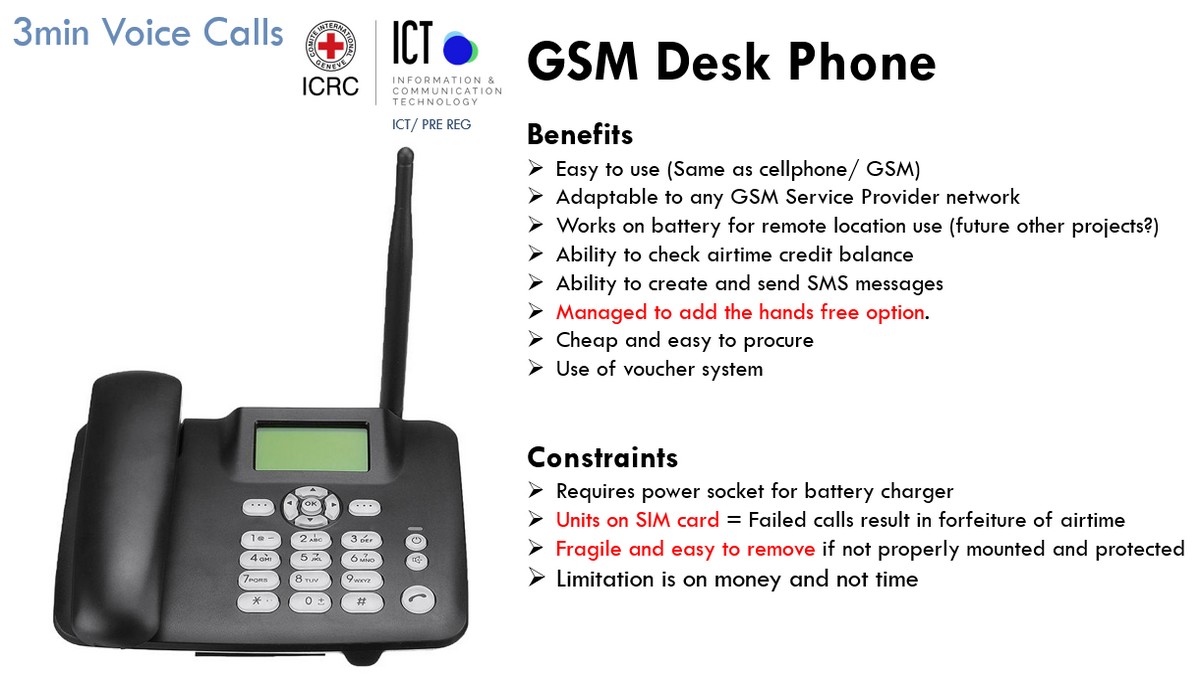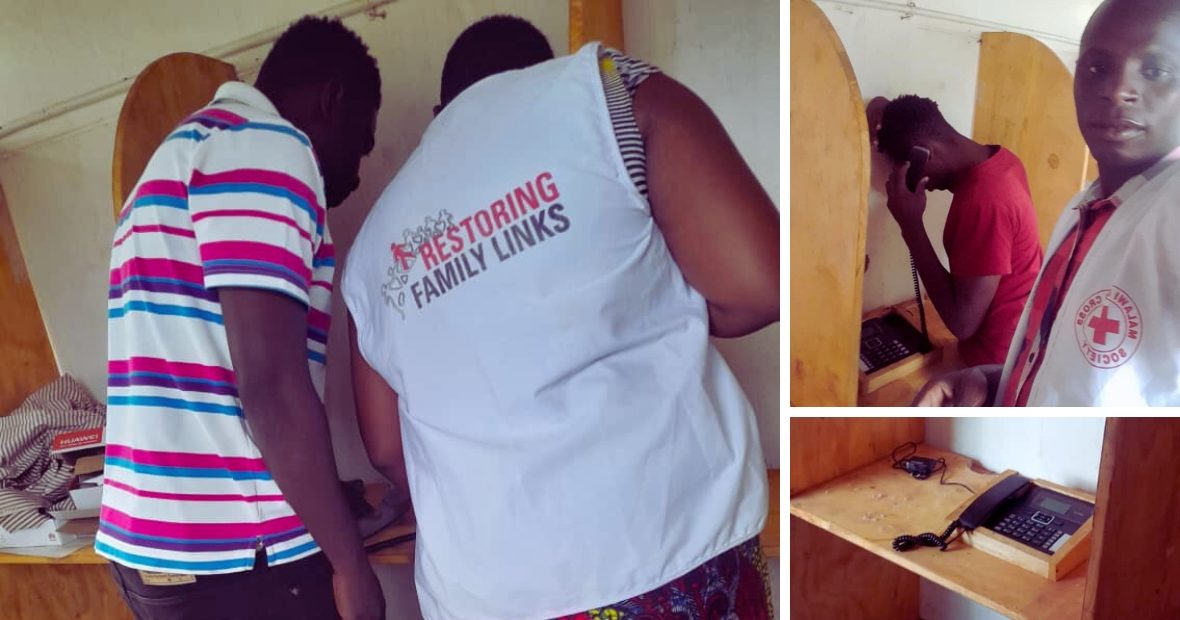When it comes to innovation, we tend to think of high-tech gadgetry with a hefty price tag.
But more often than not, some of the best solutions are low-tech, cost-effective and easy to implement – and yet have an outsized impact on people’s lives.
Take, for example, two pilot projects that the ICRC is supporting at migrant transit centres in Zimbabwe and Malawi.
For migrants, staying in touch with loved ones and being able to communicate their whereabouts can often be problematic.
First, you must have a phone with a SIM card that works in your location; then you need money in the right currency to be able to pay for the call.
If you’ve just been deported or are seeking asylum in a new country, you may not have either.
Free family calls
An obvious solution would be to provide free public phone calls at places where migrants gather.
This is what the Zimbabwe Red Cross Society (ZRCS) is doing, with support from the ICRC Regional Delegation in Pretoria and funding from the ICRC’s Innovation Team, at a migrant reception centre in the town of Plumtree, on the border with Botswana.
It’s a place where Zimbabwean migrants – some of whom have been deported – are brought by bus from Botswana before moving on to other destinations in Zimbabwe or elsewhere. They are only at the reception centre for a maximum of two hours.
“The sheer volume of returnees – and the short timespan – meant that it was impossible for ZRCS volunteers to meet demand using a single hand-held cellphone,” explains Pamela Mhlanga, the ICRC’s Restoring Family Links & RedSafe Officer in Pretoria.
“So we installed four desktop phones equipped with GSM cellphone technology that returnees can use, using pre-paid vouchers that they receive on arrival. It means they can make a quick call to their family to inform them that they are coming home or that they need money for transportation. It’s a much-needed service.”
More than 1,800 vouchers for free national or international calls have been issued at the Plumtree migrant reception centre since the service started in March this year.
Meeting user needs
A similar system, with three fixed GSM phones, is up and running at the Karonga transit shelter, on the border between Malawi and Tanzania. This is being managed by the Malawi Red Cross Society (MRCS), again with support from the ICRC’s Pretoria Regional Delegation.
The shelter mainly houses asylum-seekers from the Democratic Republic of Congo en route to the Dzaleka refugee camp, some 600 km away. They are supposed to stay for up to 90 days while the authorities process their papers. But some of them end up staying for up to nine months, because of difficulties in arranging transportation.
“Sometimes we have 150 or more people in the transit shelter. They receive a phone voucher on arrival and can ask for additional vouchers when necessary,” says Mhlanga. “So far we have issued more than 530 vouchers.”

Whereabouts and wellbeing
Both pilots take their lead from an earlier ICRC Pretoria initiative in 2021 – also supported by the Innovation Team – which took place at the Lindela Holding Facilities, a deportation centre in South Africa.
The ICRC installed four open-access phone booths, enabling detained migrants to make free, unsupervised calls to their families between 8am and 3pm.
Previously, they could only make phone calls to relatives and loved ones four times a year during ICRC visits.
As a result of the programme, the number of calls made by migrants increased ten-fold, with the authorities reporting that the benefits were greatest among the most vulnerable.
“In Lindela, we were able to develop a cost-effective and sustainable solution that not only met the needs of migrants and contributed to their wellbeing, but also worked effectively in a detention setting, taking into account the surrounding ecosystem and protocols.”
Innovation Team Portfolio Manager Mima Stojanovic.
Key lessons learned at Lindela, which have informed the latest pilots, include:
- Working closely with the authorities to enable acceptance
- Engaging and negotiating with the network provider to ensure the best possible service at the lowest price point for vulnerable people
- Understanding what are the optimal service conditions for all parties involved, including the number of calls made with the vouchers, safety and maintenance of the phones, etc.
Systematic, sustainable, autonomous
“We are exploring how these phone systems work in different scenarios, such as a holding facility, a reception centre where people stay for only a short time, and now a transit shelter. They are different use cases, which will help the ICRC develop a system that can be replicated in multiple settings,” says Mhlanga.
“For me, what really counts is that it’s simple to use, plus it’s autonomous: people are free to use the phones when it suits them rather than when an office is open, or a volunteer or guard is present.”
The ICRC is hoping that the ZRCS and the MRCS, who are responsible for maintaining the phone systems, will eventually secure support from mobile phone operators in the form of discounted rates.
The CHF 22,000 cost of both initiatives – CHF 12,000 for Plumtree and CHF 10,000 for Karonga – includes the purchase and installation of equipment and SIM cards, and the cost of the call vouchers.
The Innovation Team is providing additional seed funding to expand the phone service to migration detention centres in Malawi, with more possibilities to come.

